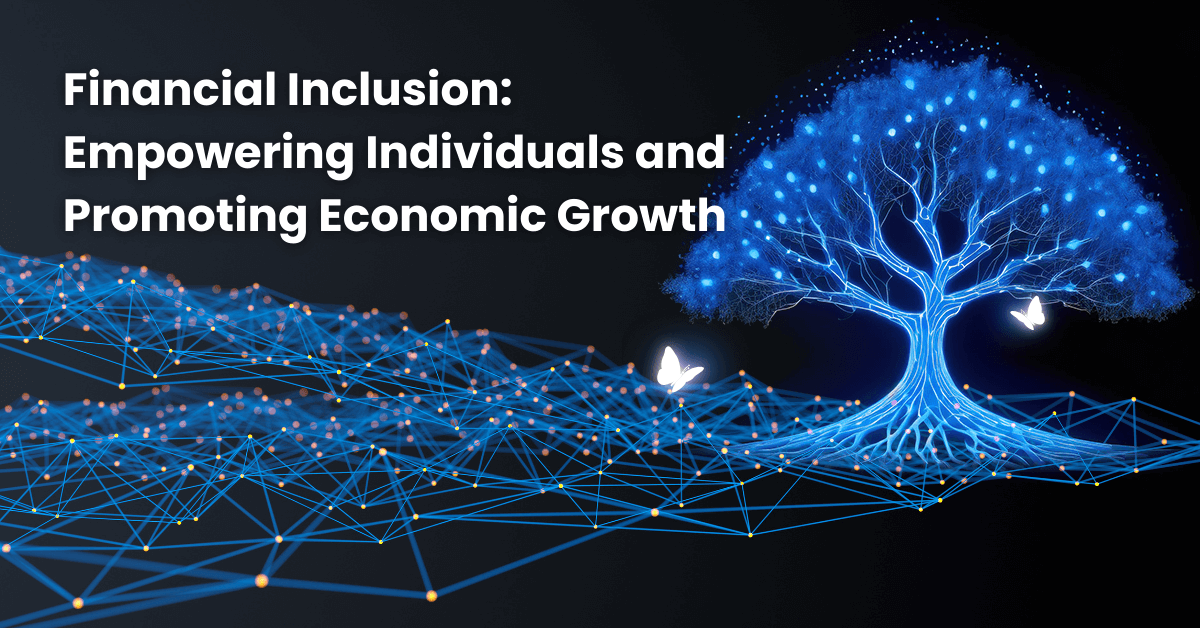
Financial inclusion plays a crucial role in ensuring access to affordable financial services for all segments of society, particularly the underprivileged and low-income groups. By providing access to formal financial services like banking, insurance, and credit, financial inclusion can address poverty, promote economic growth, reduce income inequality, promote financial stability, and empower individuals. In this comprehensive article, we will explore the importance of financial inclusion and its future prospects in India and around the world.

Addressing Poverty Through Financial Inclusion
Financial inclusion can be a powerful tool in alleviating poverty by addressing the basic financial needs of low-income households. In India, where poverty affects 75% of rural and 50% of urban households, boosting financial inclusion is crucial. By providing access to formal financial services and promoting savings and investment habits among the underprivileged, financial inclusion can help uplift individuals and communities out of poverty.
Promoting Economic Growth Through Financial Inclusion
One of the key benefits of financial inclusion is its contribution to economic growth. By enabling the flow of credit to small and medium-sized businesses (SMEs), which are often the backbone of the economy, financial inclusion can fuel entrepreneurship and innovation. In India, where SMEs contribute over 30% to the GDP, it is imperative to support them financially through inclusive measures. This support can help SMEs expand their operations, create jobs, and contribute to the overall growth of the economy.
Reducing Income Inequality Through Financial Inclusion
Income inequality is a pressing issue in many countries, including India. Financial inclusion can play a vital role in reducing this disparity by providing financial services to underserved sections of society, including rural areas and women. The COVID-19 pandemic has further exacerbated income and wealth inequality, making it even more crucial to address this issue. In India, statistics show that the top 30% of the population owns 90% of the country's wealth, highlighting the need for targeted financial inclusion initiatives.
The Importance of Financial Literacy
Financial literacy is a critical component of financial inclusion. Without basic awareness and literacy to make informed financial decisions, the benefits of financial inclusion may not be fully realized. In India, only 27% of adults are financially literate, making it easier for intermediaries and informal financial systems to take advantage of the illiterate population. To address this issue, educational programs and initiatives are necessary to promote financial literacy and empower individuals to make informed choices.
Promoting Financial Stability Through Financial Inclusion
Another significant benefit of financial inclusion is its potential to promote financial stability. Informal and unregulated financial systems are often associated with fraud and other illegal activities. By providing access to formal financial services, financial inclusion can reduce reliance on these informal systems and enhance financial stability. This, in turn, benefits individuals, businesses, and the overall economy by creating a secure and regulated financial environment.
Empowering Individuals Through Financial Inclusion
Financial inclusion can empower individuals by enabling them to make informed financial decisions, access credit, and invest in their future. By providing access to formal financial services such as banking and insurance, individuals can protect their assets, save for the future, and plan for emergencies. This empowerment can lead to increased economic mobility and a better quality of life for individuals and their families.
The Future of Financial Inclusion
The future of financial inclusion looks promising, with significant progress made in recent years. Digital transformation has been at the forefront of government and financial institutions' efforts, accelerating inclusivity. The adoption of internet banking, mobile banking, and other digital financial services by MSMEs and underserved individuals has been steadily increasing, indicating a shift towards a digital ecosystem.
Collaboration between Fintechs, Non-Banking Financial Companies (NBFCs), and traditional financial institutions has also been instrumental in driving financial inclusion forward. This collaboration has led to innovative financial products and services tailored to the specific needs of the underserved population. As technology continues to evolve, customization and personalization in financial services are expected to further improve, ensuring that the benefits of financial inclusion reach every individual.
However, it is important to note that financial literacy remains a critical factor in the success of financial inclusion initiatives. Efforts by the government and financial institutions to promote awareness and literacy among the population are essential to ensure that individuals can fully leverage the benefits of financial inclusion.
Conclusion
Financial inclusion is a powerful tool for empowering individuals, promoting economic growth, and reducing income inequality. By providing access to formal financial services, financial inclusion can address poverty, support entrepreneurship, and contribute to the overall development of the economy.
Financial literacy remains a key challenge that needs to be addressed to maximize the impact of financial inclusion initiatives. By working together, governments, financial institutions, and other stakeholders can make a lasting impact and create a more inclusive and prosperous society for all.








